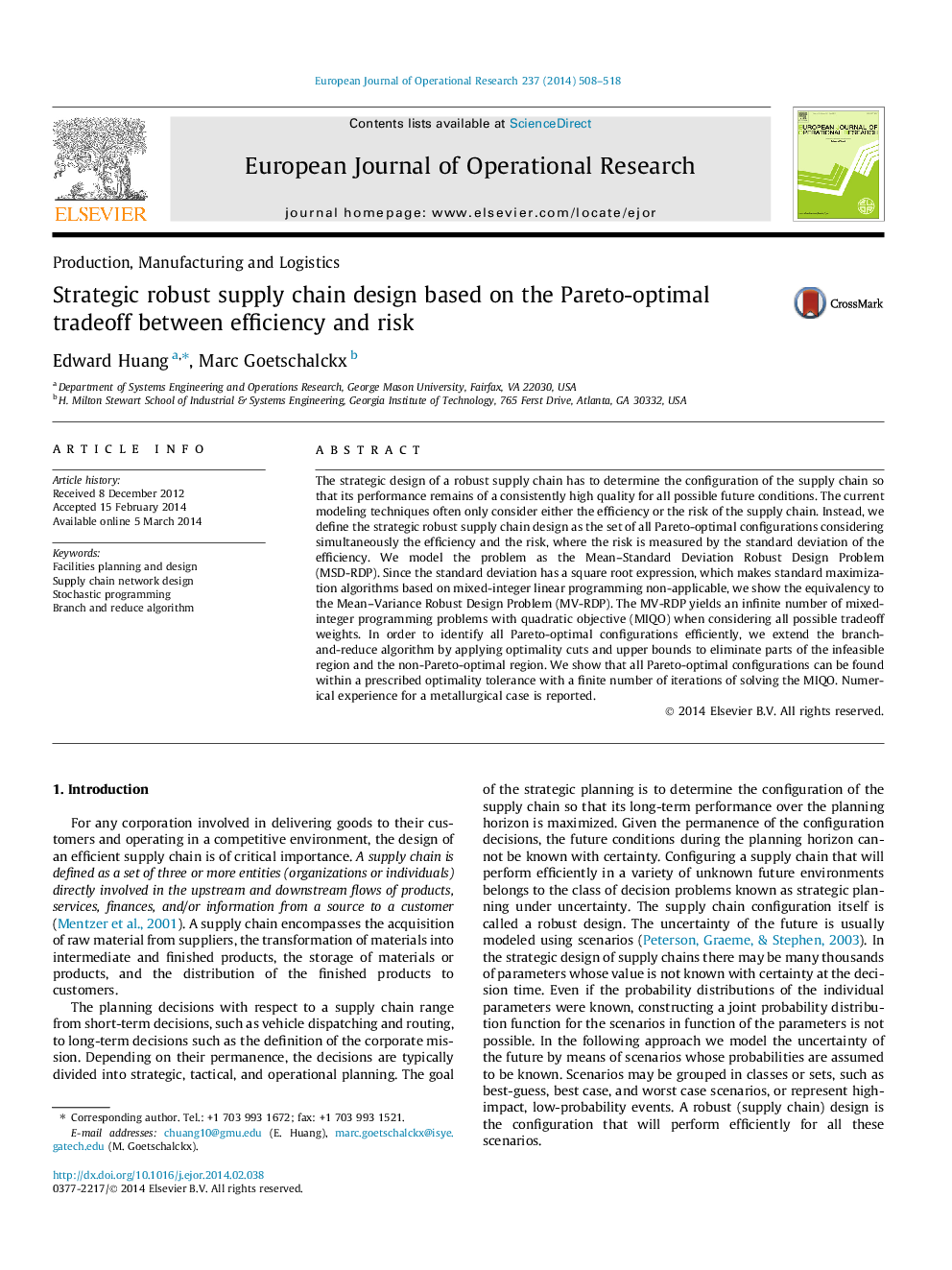| Article ID | Journal | Published Year | Pages | File Type |
|---|---|---|---|---|
| 478138 | European Journal of Operational Research | 2014 | 11 Pages |
•Strategic robust supply chain design considering both the efficiency and the risk.•All Pareto-optimal robust supply chain configurations are found.•Any configuration has a risk versus reward curve between maximum reward and minimum risk performance.•An efficient algorithm based on the branch-and-reduce algorithm with specialized cuts.•Proof that the risk versus reward curve has an increasing slope.
The strategic design of a robust supply chain has to determine the configuration of the supply chain so that its performance remains of a consistently high quality for all possible future conditions. The current modeling techniques often only consider either the efficiency or the risk of the supply chain. Instead, we define the strategic robust supply chain design as the set of all Pareto-optimal configurations considering simultaneously the efficiency and the risk, where the risk is measured by the standard deviation of the efficiency. We model the problem as the Mean–Standard Deviation Robust Design Problem (MSD-RDP). Since the standard deviation has a square root expression, which makes standard maximization algorithms based on mixed-integer linear programming non-applicable, we show the equivalency to the Mean–Variance Robust Design Problem (MV-RDP). The MV-RDP yields an infinite number of mixed-integer programming problems with quadratic objective (MIQO) when considering all possible tradeoff weights. In order to identify all Pareto-optimal configurations efficiently, we extend the branch-and-reduce algorithm by applying optimality cuts and upper bounds to eliminate parts of the infeasible region and the non-Pareto-optimal region. We show that all Pareto-optimal configurations can be found within a prescribed optimality tolerance with a finite number of iterations of solving the MIQO. Numerical experience for a metallurgical case is reported.
